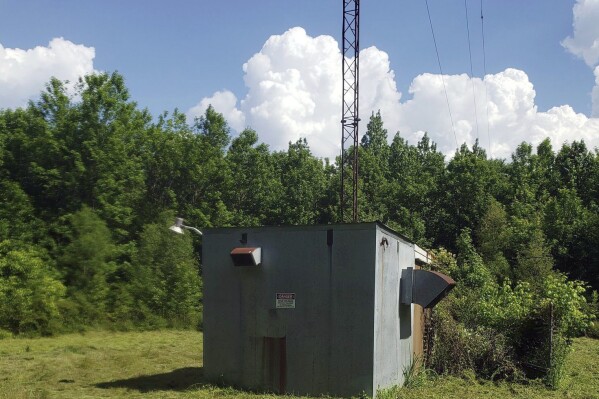Lottery, casino bill passes key vote in Alabama House
MONTGOMERY, Ala. (AP) — Lottery and casino legislation passed a key test Thursday in the Alabama Legislature as the House of Representatives approved a sweeping gambling proposal with an aim to get the measure before voters in November.
The House of Representatives approved the proposed constitutional amendment to allow up to 10 casino sites with table games and slot machines, a state lottery, and to allow sports betting at in-person locations and through online platforms. It would also authorize the governor to negotiate a compact with the Poarch Band of Creek Indians.
The measure passed on a 70-32 vote, exceeding the needed 63 yes votes in the House for a proposed change to the Alabama Constitution. It now moves to the Alabama Senate.
If it wins final approval in the Statehouse, the proposal will go before Alabama voters in the November general election, the first public vote on gambling since a proposed lottery was rejected in 1999.



“It’s been a quarter of a century that we’ve denied our people the right to vote on this issue,” Republican Rep. Andy Whitt, a co-sponsor of the bill, said.
Representatives will next debate the 143-page enabling legislation that would set out rules for where casinos could be located, how licenses would be issued and state oversight of gambling.
If casinos are allowed in the state, the Poarch Band of Creek Indians would be able to have casino games at their three tribal sites.
The legislation says a new Alabama Gaming Commission would issue licenses for up to seven casinos, reserving six for Jefferson, Greene, Macon, Mobile, Lowndes and Houston counties. A final licensed site, contingent upon a negotiated compact with the Poarch Band of Creek Indians, would give the tribe a license to open a casino — in addition to the three existing tribal sites — on non-tribal land in the northeast corner of the state near the Georgia state line.
For the last 25 years, gambling legislation has stalled under a mix of opposition to legalized gambling and a turf war over who could get casino licenses. Lottery proposals since 1999 have become politically intertwined with the issue of whether to allow casinos. Republican Gov. Kay Ivey and Republican House leaders got behind this year’s proposal.
Several lawmakers in both parties said they see Alabamians regularly cross state lines to buy lottery tickets or visit casinos, but that Alabama isn’t reaping the tax benefits of those sales. Other supporters argued it’s time to let voters decide.
“People need the right to decide how they live their lives. People need to decide what they do with their own money,” Republican Rep. Jim Hill of Odenville said.
Opponents expressed opposition to allowing casinos in the state and the swift pace at which the proposal is moving through the Alabama Legislature.
Republican Rep. Jim Carns of Vestavia Hills said the proposal is “full of a rat poison.”
Carns said the bill, which was voted on one week after it was introduced in the House, has gotten enough scrutiny.
“Gambling causes social problems in the state of Alabama,” Carns said.
The Legislative Services Agency estimated that taxes on the three forms of gambling would generate between $635 million and $913 million in revenue annually. That revenue would largely be steered to two new funds for lawmakers to decide how to use. While the legislation names uses, such as using lottery money for scholarships to two-year and technical colleges, it does not guarantee a funding level.
Disclaimer: The copyright of this article belongs to the original author. Reposting this article is solely for the purpose of information dissemination and does not constitute any investment advice. If there is any infringement, please contact us immediately. We will make corrections or deletions as necessary. Thank you.



